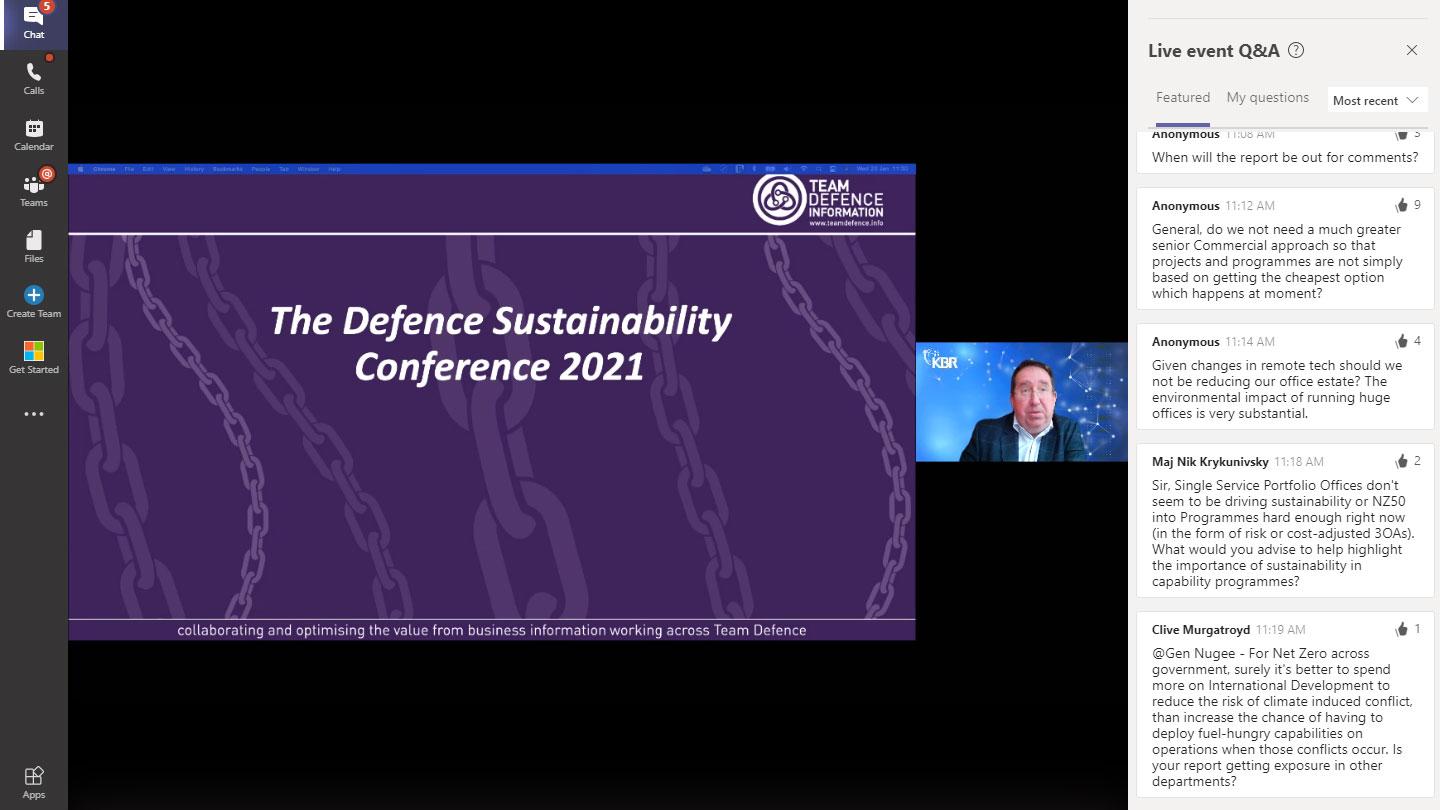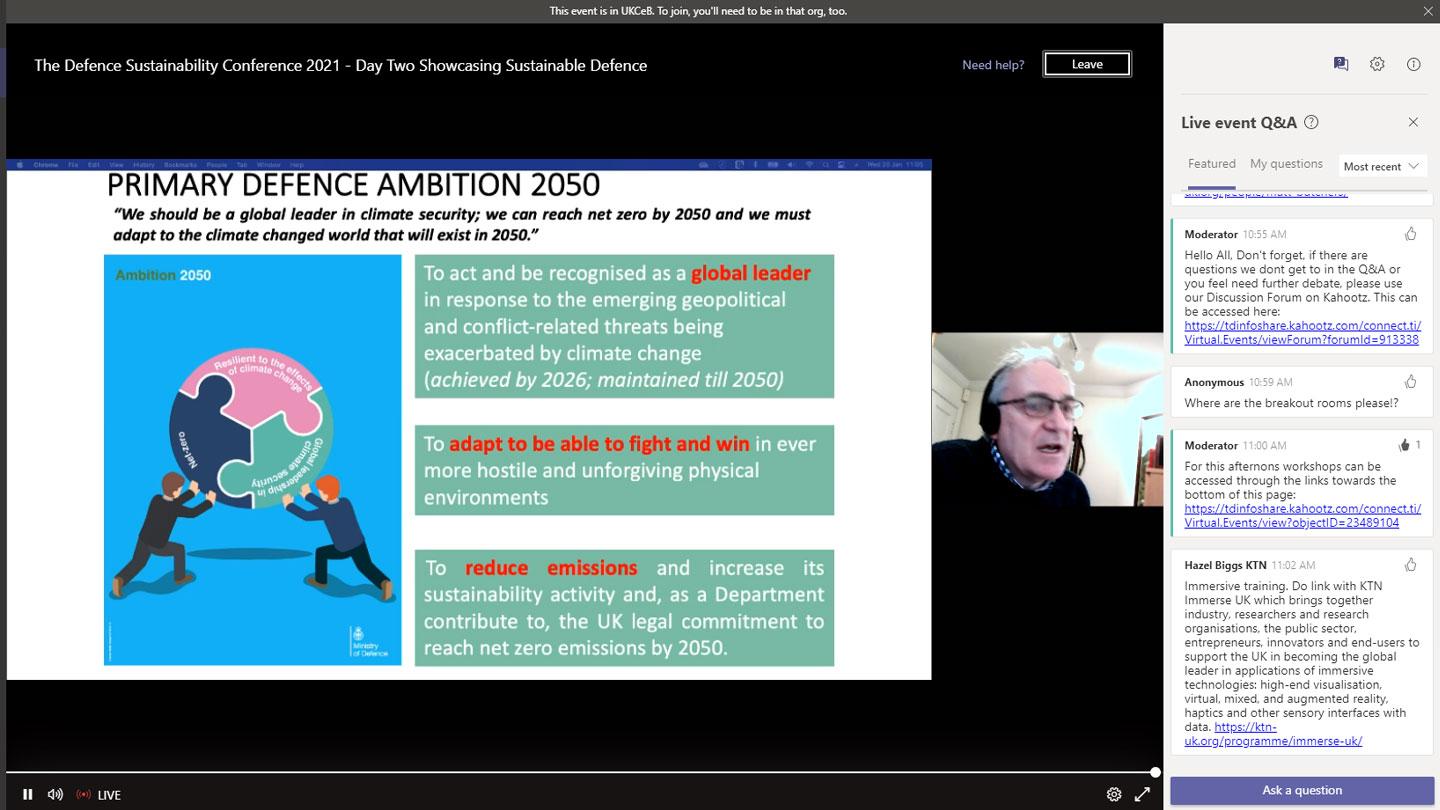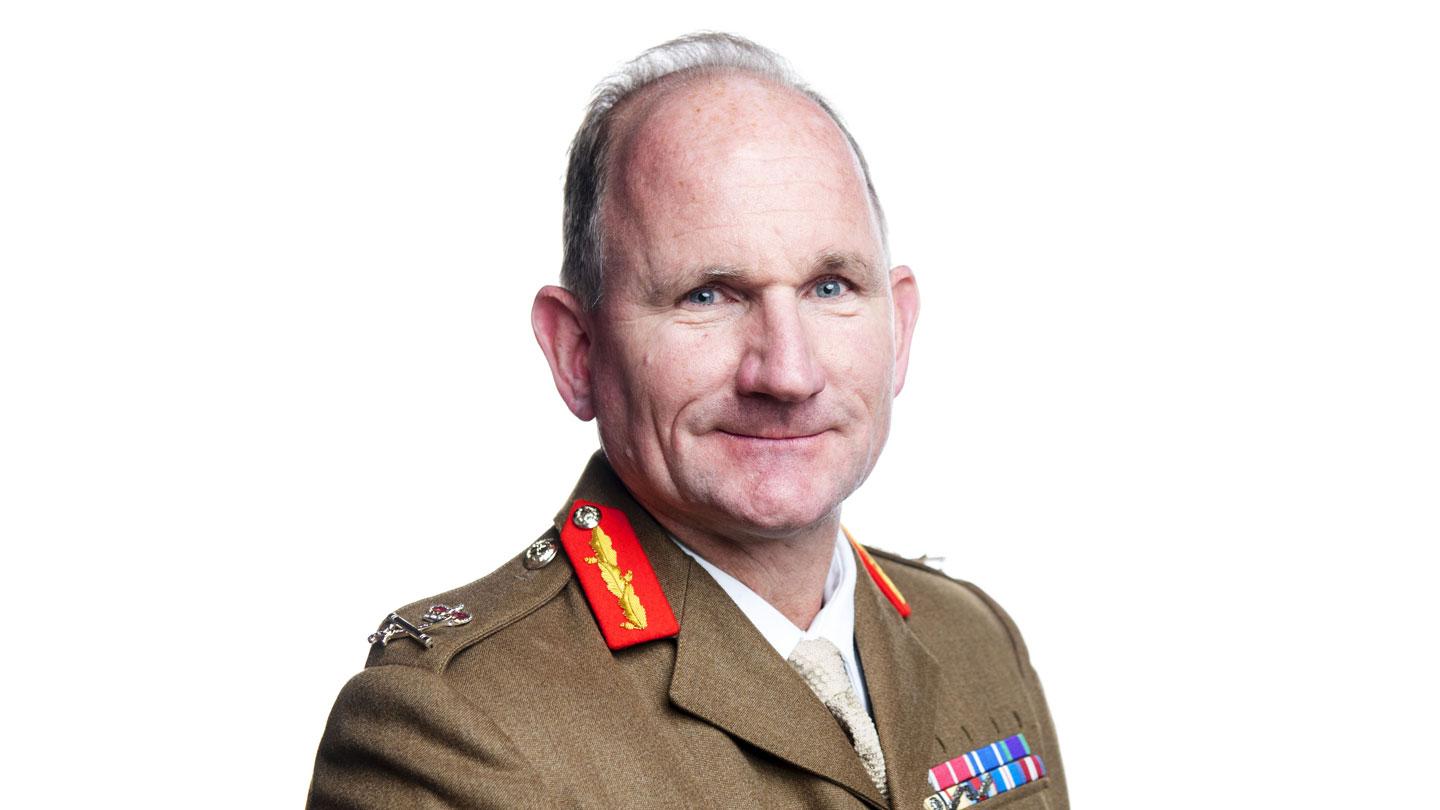Helping Shape a Sustainable Future for UK Defence
Over 800 industry and defence sector professionals recently joined KBR leaders to learn about our approach in ensuring a sustainable future for UK Defence.
Building on the Team Defence Information (TDI) Sustainability Briefing last November, the recent KBR-sponsored two-day virtual conference that took place January 19-20 offered an insight into solutions to support the UK Ministry of Defence (MOD) in achieving its Net Zero 50 target.
KBR’s Benjamin Sawford, VP of Global Advisory Consulting, and Dougal Monk, Senior Director of Strategic Development, Government Solutions EMEA, opened the conference with a keynote speech focusing on sustainable approaches from the private sector and government to government strategies. It struck a stimulating and challenging Q&A and was the perfect introduction into a highly inspiring event.
During the conference, Lieutenant General Richard Nugee, Climate Change and Sustainable Defence Strategy Lead for the MOD, shared details of their strategy to reach Net Carbon Zero by 2050 (NZ50).
Lieutenant General Richard Wardlaw, Chief of Defence Logistics and Support (CDLS) in the UK Ministry of Defence (MOD), commented in his keynote address how the Roadmap for Sustainable Defence Support Whitepaper that KBR worked closely with the MOD to develop, ”has helped to shape MOD strategy”. The paper discusses how UK forces can adapt to carbon efficiency while sustaining force elements at home and abroad.
KBR’s Advisory Consulting business is a leader in decarbonization strategies and is helping governments build a roadmap for energy transition. Singapore is one of the many countries our team is supporting in their transition to a downstream low to zero carbon economy, collaborating with the Singapore Prime Minister’s Office to assess potential sources of hydrogen imports and determining the feasibility of utilizing the country’s existing infrastructure and recommending solutions based on existing policy on the use of hydrogen across Singapore.
KBR’s Ben Sawford recently responded to the announcement of the UK Government’s spending plans to create a leading global position in green energy, blending with the modernization of its essential defence operations. With the MOD contributing 53% of the UK’s Government Carbon Emissions, KBR is confident that our expertise in energy transition can continue supporting the MOD in achieving a greener and more sustainable future.
For every bit of engagement during the event, TDI contributed to a donation of trees being planted. As the conference came to a close, it was announced that there were 724 questions asked, 150 documents downloaded and 966 stand visits which equated to a hectare of community woodland (840 seedlings) and 20 different tree varities to be planted for the Great Green Wall with the potential of up to an additional 500 trees to be planted in Madagascar, Mozambique and Nicaragua whenever anyone watched-back any of the sessions.
At KBR we are proud to have already reached carbon neturality in 2019, two years ahead of our target to achieve net-zero carbon emissions by 2030. You can read more about KBR’s own sustainability goals and our latest sustanability and corporate responsbillty report here.
KBR is now leading a month of industry and defence sector lunch and learn sessions focusing on other key topics supporting sustainability efforts, including NZ50 in the Deployed Environment, Sustainability in a Facilities Management Environment, Using Engineering Technology and our Digital Capability to Deliver sustainable Solutions in the Defence Sector and Sustainable Data Centers for Defence.






